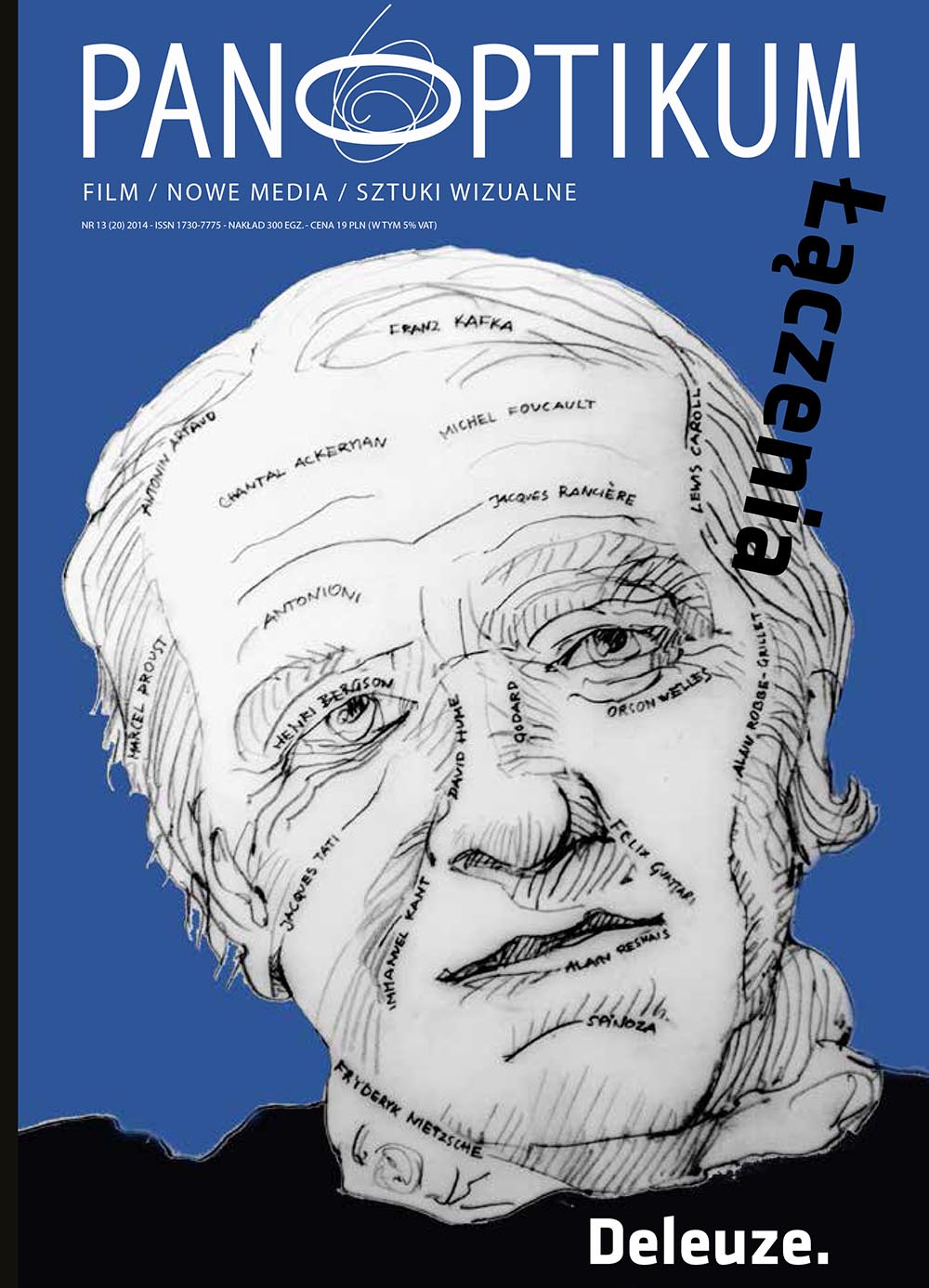Między "czas się wywichnął" a "czas wypadł z ram". Wprowadzenie do recepcji myśli Gillesa Deleuze'a w polu kultury audiowizualnej
Abstrakt
The philosophy of Gilles Deleuze, including the way he perceives cinema, is stretching away on both sides: the postmodernism and the modernism. This hypothesis is not bound to the chronological key of Deleuze’s works but it is rather a consequence of diagnosing some specificity of this discourse. The postmodernist dimension is obvious. We can find it in the papers and books published with the French psychoanalyst Félix Guattari or in Deleuze’s most prominent “autonomous” texts as Difference and Repetition or The Logic of Sense. The inherited path of this direction of thinking is connected with two wings: non-Cartesian direction of “becoming-an-animal, a plant, a molecule” and the theory of affect. The process of “becoming” consists in reducing the distinction of human and animal worlds and removing a human subject from central position. Affective attitude is understanding, as this kind of thinking that is preceded with a sensual stimulation capturing us and forcing us to engage. It is not possible without a transition from a state of affectation (being under influence) of an excitement to the action (causing an affect).
The method of movie selection used in Cinema 1 Time-Image can easily be linked with the notion of (European) art cinema. Certainly, there are some cinematic examples exceeding this initial frame but generally Deleuze is well acquainted not with a minor cinema but with an institution of art cinema which has its own network of film festivals, funds and awards – this plan of quoted references meets the cinephiliac experience of Gilles Deleuze. In this sense we can call the author of The Fold: Leibniz and the Baroque a “modernist” thinker. This article is an attempt to report the reception of the audiovisual part of Deleuzian thinking.

 Uniwersyteckie Czasopisma Naukowe
Uniwersyteckie Czasopisma Naukowe





